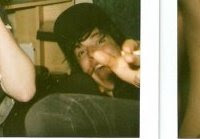Entertainment in British television has for decades been held in high regard, its evolution perfectly matched to the needs and wants of a demanding public. Though in more recent years, the programming has become more languid. Banality has replaced originality, whereby shows regurgitate ideas and where a culture of instant-gratification is becoming more and more apparent.
British humour has been hit the hardest. The subtle sense of satire and self- deprecation that forms the lifeblood of British comedy has been discarded in favour of new shows that gravitate towards repetitive toilet humour for cheap thrills. ‘Little Britain’ is one such example. The first episode showed much promise for its scathing critique of British life that was all too true. The characters lampooned British stereotypes in an exaggerated way, similar to ‘The Fast Show’ that had already seen major success. Though as the series progressed, the façade quickly wore thin. Recurring characters with recurring themes became the norm and the one-dimensional nature of the show quickly became clear. Some years ago this could have spelt the end of a series, but rehashed series still crop up, for example ‘The Catherine Tate Show’
So what implications might this have on the nation other than a steady depreciation of innovation? Recent studies in primary schools show that children’s development of vocabulary is on the decline. The finger can all too often be pointed at modern culture as a scapegoat for these issues, but there is new evidence of televisions influence on children’s behaviour. A recently conducted focus group sheds light on this complex subject:
“Asked about their pupils' viewing habits, teachers, support staff and school leaders said the programmes led to general rudeness in the classroom, with pupils answering back, mimicking, using retorts and catchphrases (mentioned by 88%), and swearing or using inappropriate language (82%) after watching them.” (Guardian online)
In a world where television is a predominant medium in most children’s lives, with more than one seven year old in five having a TV in their bedroom, the study has some validity.
Another offender is the relentless influx of reality shows. Big Brother has devolved in taste from an original concept that cleverly fought off allegations of sensationalism by adding a psychological ‘info-tainment’ slant. The shows development has seen increasingly bizarre contestants being pitted against increasingly bizarre and tasteless tasks. Can entertainment truly be gleaned from watching the pained expression of a housemate munching a devastatingly strong chilli? Have we come so far in our development that stress and suffering are our favourite viewing pleasures? As far as mainstream television goes, exploitation seems at the heart of its output. ‘Britains’ got talent, the latest repeat of the ‘Popworld’ talent show formula, has taken this to new heights. The now world renowned Susan Boyle has been shot into the limelight by a twisted logic. Much drama is made from her story of caring for her mother and having little social life. Her appearance, though not directly mentioned, is made out to be of such stark contrast to her voice that it would seem that no-one had ever heard of a conventionally unattractive person being able to sing. Though she is of obvious talent, the subsequent media furore surrounding her shift into the spotlight, including her preening into a more beautiful creature, demonstrates a stark contrast to the earlier days of television and a perfect example of exploitation intended to monopolise.
Subscribe to:
Post Comments (Atom)


No comments:
Post a Comment